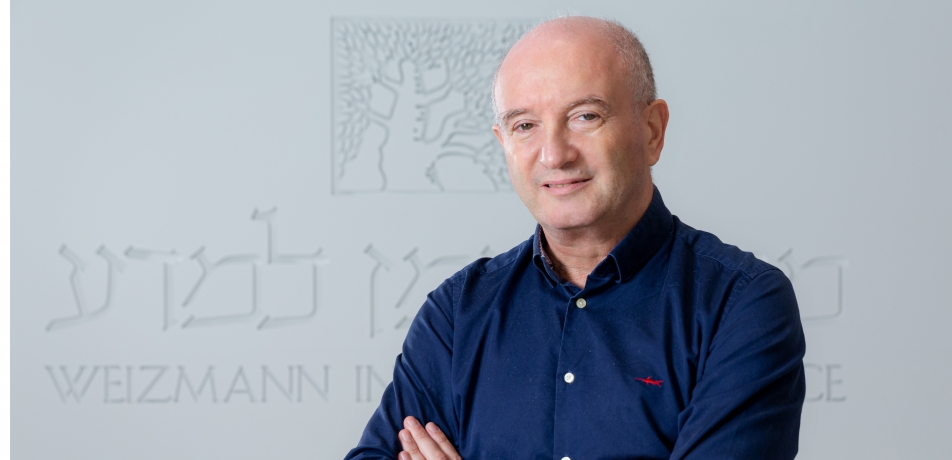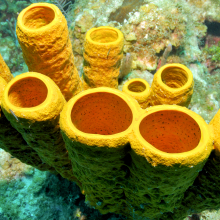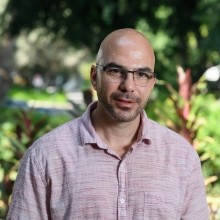Passing the torch
Q&A with President Prof. Daniel Zajfman as he steps down from the helm of the Weizmann Institute
Q&A

Prof. Daniel Zajfman
As the Weizmann Institute celebrates a major milestone year in 2019, the 70th anniversary of its establishment, we are at the cusp of another milestone, this one a change in leadership at the helm of the Institute. On December 1, Prof. Daniel Zajfman steps down as President after a 13-year tenure, handing the reins over to Prof. Alon Chen. Weizmann Magazine took the opportunity to ask Prof. Zajfman to reflect on his leadership years.
The new Nature survey, in which Weizmann was ranked #2 in research quality, indicates that the ‘Weizmann recipe’ is a good one: small but serious institutions are highly effective. What are the ingredients of the Weizmann model?
Excellence comes from the bottom up. We hire the best scientists, and then trust them to do their very best, without directing them. They have to believe they are working toward their own mission, rather than being directed by any goal—like ‘find a drug for this or that disease’. We say: ‘just explore’—and great things will come out of it. We are also an independent institution, so even though we receive government funds, we are free to explore the areas that interest us. This is the basis for a serious institution, and a key reason that the Weizmann model is effective. Over the years, I’ve seen my role, more and more, as protecting the space and freedom of our scientists.
Is there an ‘Israel model’?
What is special about the Israeli system is the lack of respect for authority, the instinct to challenge norms. This is critical in science, and Israelis should never lose this instinct. It’s not easy to manage the energy that emerges, and prevent chaos, but it should be appreciated and conserved.
Is Israel doing a good enough job retaining scientific minds?
Highly educated talent is moving across the world, and America is a magnet. Europe loses many of its best brains to the U.S., Chinese scientists are taking positions in Europe and North America, and so on. So Israel isn’t alone in facing the challenge of retaining talent. It is true that a high percentage of Israelis living abroad are highly educated people. The question is, what is the impact of that loss? And the truth is, Israeli brains can be thought of as an Israeli export, and a representation of Israel abroad. At the same time, Weizmann is also a magnet, and we are successful in recruiting very talented scientists.
I actually think our bigger challenge is attracting foreign scientists. Science must be multi-cultural, so that we get different experience, viewpoints, and questions infused into research. Israel has had successive waves of immigration which has kept the country diverse, but after the big Russian immigration in the 1990s, there have been no other major waves, and the country is slowly becoming culturally monolithic. So my fear is not so much that Israelis are leaving, but the bigger danger is that Israel will be culturally stagnant, and we’ll have ‘inbreeding’ in science.
You have had a hand in internationalizing the Institute: more foreign scientists, students, postdocs, international conferences and collaborations with institutions abroad. Is there more to do?
Definitely. We have brought more foreign PIs (principal investigators) in recent years—from China, Japan, Germany, for instance—but we are competing for them with America and Europe, and we live in a problematic ‘neighborhood’ here in the Middle East. So we’ve made an extra effort to open additional avenues to internationalization.
One of them is scientific partnerships with the best institutions abroad. We have formed collaborations with CalTech, MIT, Memorial Sloan Kettering, Institut Pasteur, EPFL, and various institutions in the UK. And many others. More than 60 percent of our papers have foreign co-authors—which is very high. Opening the David Lopatie Conference Centre has exposed our science to foreign scientists, and led to a huge increase in the number of foreign postdocs on campus. Once we saw the numbers rise, we opened the Gershon Kekst International Office to help with all the needs of the international population.
Under your leadership, the Institute has hired a growing number and percentage of women scientists. Why did you make this a top priority?
For the same reason that I wanted to internationalize. Because women are different than men, and they bring a different perspective to science. We understood that it was a loss to Israeli science—to science overall—that half of all graduate students were women, but women were only a small percentage of our faculty. We were losing talented women who weren’t doing postdoc fellowships abroad, and our Israel National Postdoctoral Award Program for Advancing Women in Science is trying to provide a remedy for that problem.
There’s still more work to do, but whereas in 2005, 10 percent of our hires were women, we’re now at about 20 or 30 percent in any given year. If science were an all-male endeavor, vast potential for discovery would be lost. Investing in the careers of women scientists is a no-brainer.
Several of the major initiatives established on your watch were nationwide efforts, like the Nancy and Stephen Grand Israel National Center for Personalized Medicine, and the Azrieli National Institute for Human Brain Imaging and Research. What’s the value of reaching beyond our campus?
When Chaim Weizmann created the Institute, he had a national vision—that the Institute would provide a backbone for the country. Our biggest national impact is in education: we educate a large proportion of Israel’s budding scientists, and our alumni work in key positions in high-tech, academia, and government.
And through the Davidson Institute of Science Education, the Schwartz/Reisman Science Education Centers, and the Department of Science Teaching, we have made a major positive impact on our school system. In the Grand Center and the Azrieli Institute, we are helping create data, make sense of it all, and make unprecedented insights in science with partners across the country, with hundreds of projects with other institutions underway.
Why is the Weizmann Institute involved in science education and literacy?
If not us, who? There are many reasons we need to be involved. First, if we want good scientists, we need to start from the very beginning—elementary school. Secondly, we have a national responsibility. We are carrying out Chaim Weizmann’s vision for national impact, and I’ve always thought that the Institute should not be an ivory tower but a lighthouse. We see ourselves as part of Israeli society and therefore responsible for its progress.
If we care about Israeli society and democracy, citizens need to be able to make rational, informed decisions about their future, and they can only do this if they understand science at a basic level. If you don’t know what a kilowatt is, or genomics, or how plastics affect the environment, you can’t make rational decisions that affect your life.
And we have made a big impact, for instance increasing threefold the number of high school students studying physics at the highest (5-point) level, with the help of the Schwartz/Reisman Science Education Center. Science education is also the best local PR for the Institute, because it familiarizes Israelis with Weizmann. I believe there is no better investment than in education—it’s the best kind of fuel you can put into the system.
What role has philanthropy played in advancing Weizmann science while you have been President? What is its role going forward?
I’ve always approached philanthropy as friend-building, and bringing people closer to Weizmann science, first and foremost. Philanthropy that benefits Weizmann is all about leveraging donor money to make advances, not to fill budget gaps. I believe our donors witness the transformative value. In my years as President, I have seen growth in the giving from the non-Jewish community, and major growth in Israeli philanthropy in particular.
Weizmann donors are a special brand of people who understand that they are affiliating with excellence when they give to Weizmann. Weizmann resonates for our donors because it means giving to science, and if you care only about science and not especially about Israel, it’s still the best investment you can make. If you happen to care about Israel, then it offers double the satisfaction because you are building Israeli science, and strengthening Israel. We also are quite efficient, and our compact size makes us agile and quick with responding to scientists’ needs and keeping donors informed and involved. Weizmann is a treasure.
What has moved you most as president?
From the very beginning, I saw it as an opportunity to serve a wonderful community of scientists and employees. I don’t see it as the summit of my career but as an opportunity to work for a wonderful organization that helped me shape my own scientific career, when I started 28 years ago.
It’s a responsibility that involves a lot of listening to the needs of scientists, grasping where science is heading, and helping scientists to achieve their dreams. It is also an opportunity to be exposed to all kinds of scientific (and non-scientific ideas). All in all, it has been incredibly rewarding.








